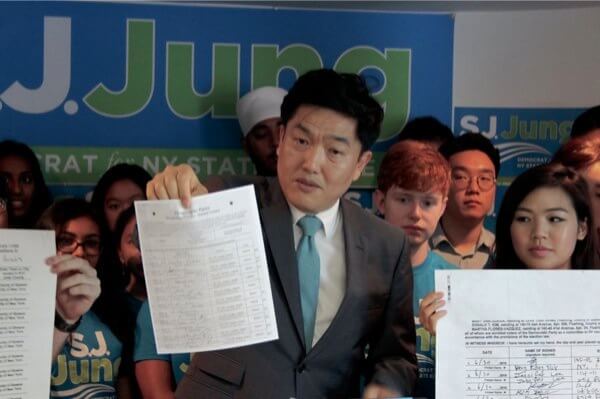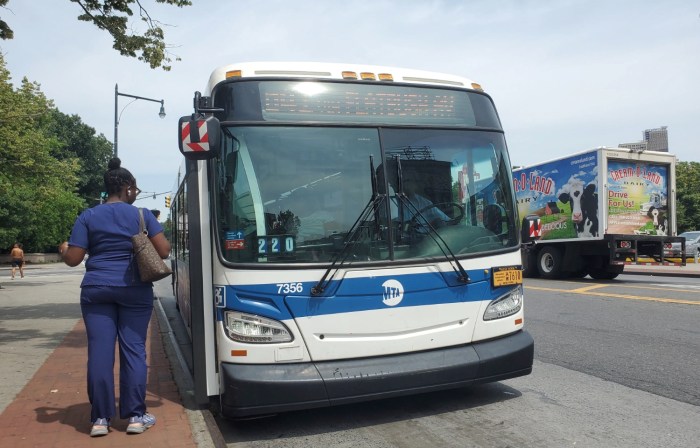By Mark Hallum
S.J. Jung challenged the validity of state Sen. Toby Stavisky’s (D-Flushing) campaign petitions at a Tuesday news conference claiming many of the signatures were out of the district, illegible or lacking a valid address to the extent that the incumbent was only left with about 13 valid signers.
The Democratic challenger facing Stavisky in the primary displayed examples of petition sheets that showed scribbled lettering and incomplete addresses, while his campaign volunteers had gone through each sheet and marked which signatures were out of the district.
But the Stavisky campaign seemed less concerned than annoyed.
“S.J. Jung needs to stop wasting everyone’s time with ridiculous challenges that have no chance of success,” said Veronica Ng, campaign manager for Stavisky. “The truth is that he’s a perennial candidate who has been rejected time and time again by the voters and is now reduced to making silly claims. Senator Stavisky is working hard for the people of Queens and that’s why she will be re-elected by a wide margin.”
Jung ran against Stavisky in 2014 and picked up about 40 percent of the vote in the primary.
One complaint was that Stavisky had not organized her own petition drive and had been on the same petition sheets as others running for elected office. To Jung’s campaign, this meant even if a resident was signing in support of one candidate, they were also signing in support of Stavisky. Jung argued that while having more than one candidate on a petition sheet is not illegal, it is unfair.
A spokeswoman from Stavisky’s campaign explained that rather than making people sign more than once for different candidates in the same district, incumbents for different offices will agree to go on the same petition sheet out of convenience to the voters.
She said petitioners often place themselves in public places with heavy foot traffic, such as downtown Flushing, resulting in addresses which are out of the district ending up on petition sheets. In this case, she added, it is up to the Board of Elections to decide whether or not the signature is valid.
Jung recently announced his campaign had exceeded the number of petitions necessary to run for Senate with 3,347 signatures filed, the minimum of which is 1,000, while Stavisky’s campaign announced an estimated number of about 3,300.
But Jung’s figures on the number of Stavisky petitions are higher.
He said his campaign filed specific objections against 3,502 of the 3,515 signatures for Stavisky submitted to the Board of Elections, which he contended could leave her with only 13 valid signatures.
“Our campaign is focused on bringing reform to politics in this state,” said Jung. “The first step to do that is to shine a light on this rigged petition process. Our volunteers – not paid canvassers or party officials – went out every night in the month of June, knocking on the doors of registered Democrats and collecting signatures to get on the ballot. This is in stark contrast to our opponent, who piggy-backed off of the petition drives organized by several Assembly members.”
Stavisky issued a statement after filing her petitions acknowledging the work of volunteers who helped with her petition drive.
The Democratic primary is Sept. 13.
Reach reporter Mark Hallum by e-mail at mhall





































